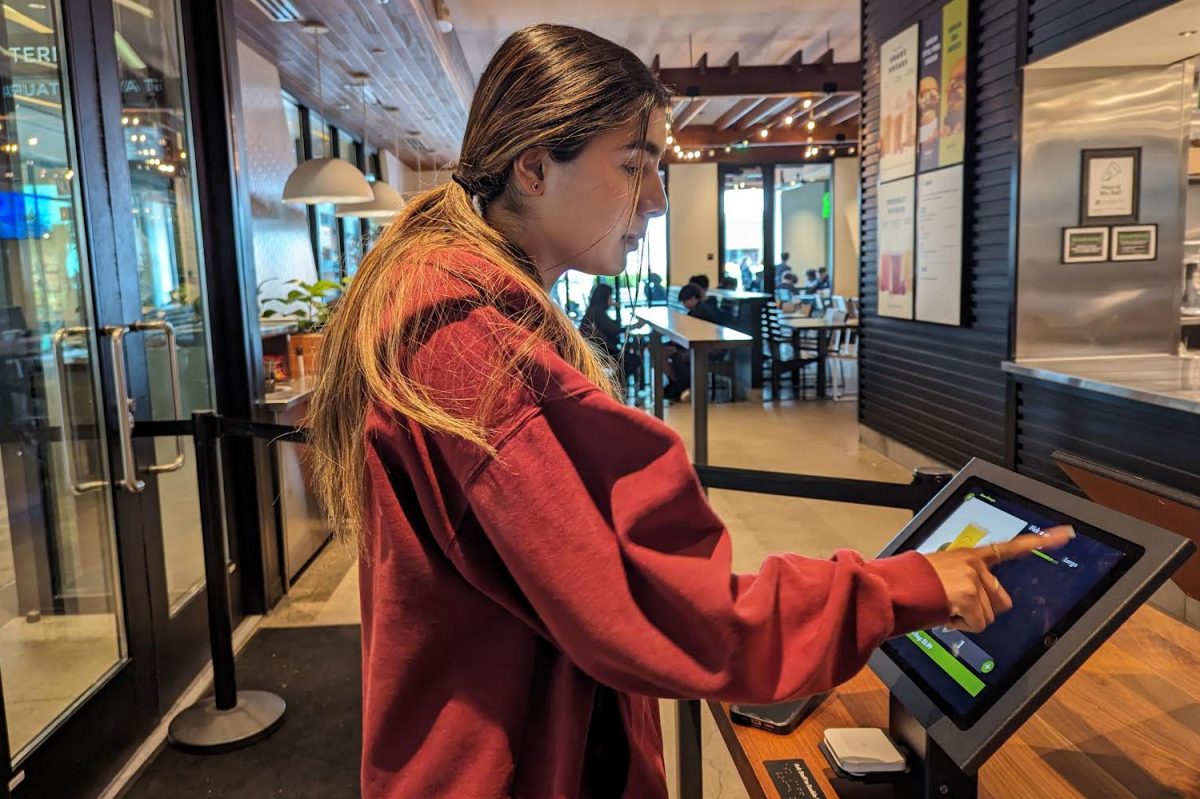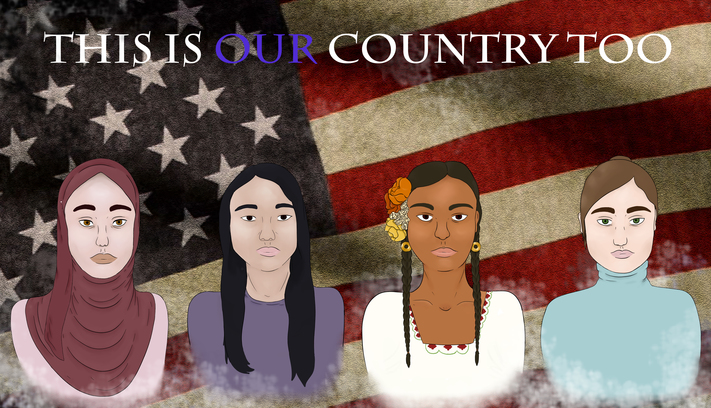It seems like every day when I turn on the news Donald Trump’s administration is finding a new way to attack immigrants and minorities.
On Jan. 27, Trump signed an executive order banning Syrian refugees as well as travel from seven Muslim-majority countries, after advocating for a “complete and total shutdown of Muslims entering the U.S.”
Trump then spoke of displaying the names of “aliens” who committed crimes in sanctuary cities such as San Francisco on weekly public lists. Recently, leaks provided to the Associated Press suggest that the Trump administration may be considering sending as many as 100,000 National Guard troops to round up immigrants.
All of this is happening after Trump ran a campaign based on pure xenophobia and American exceptionalism, calling Mexicans job-stealing rapists and praising the 1950s Operation Wetback, a deportation law set in place by President Dwight D. Eisenhower which became a humanitarian crisis. Along with that, the President has also demanded “extreme vetting,” said mosques should be under surveillance, and even praised President Franklin D. Roosevelt’s Japanese internment camps, one of the most outrageous displays of racism committed in modern American history.
As someone who is an immigrant, all of this sounds like a dystopian novel from hell coming to life before my very eyes. When I moved here from Romania six years ago, I was astonished to see the amount of inclusion and diversity that existed, and I became proud to call myself a citizen of America because I truly believed, and I still do, that this country is build on diversity and equality. How someone like Donald Trump can become president in the 21st century is not only sickening to me, but also terrifying.
Unfortunately though, this trend of nativism is nothing new. In fact, as I found out thanks to my AP U.S. History class, it is nothing more than history repeating itself.
Starting in 1820, the first wave of immigrants, mostly Irish and German people, began coming to America hoping to get a shot at the “American Dream,” as well as to flee starvation and religious persecution. They were greeted with great suspicion and contempt by Americans, who largely viewed them as Catholic, alcoholic outlanders.
This first wave was so hated that an entire political party was formed against them: the infamous Know-Nothing Party. Claiming that the immigrants were being controlled by the Pope and were personally planning the demise of America, the party aimed to “purify” society. Sounds familiar?
Later on, the second wave of immigrants came to a newly industrialized America in the 1870s, most from Italy, Eastern Europe, and Russia — traditionally poorer people and followers of either Orthodox Christianity, Judaism, or Catholicism. They didn’t get a warm welcome either, and were generally hired for the most dangerous jobs with the worst conditions and lowest pay, living in crowded parts of towns and, of course, being accused of “stealing jobs from Americans.”
The Chinese and Japanese immigrants were perhaps the worst off. While the Europeans were simply not the right kind of white or not the right branch of Christianity, people from Asian countries were perceived as complete outsiders. In 1882 the Chinese Exclusion Act was passed, prohibiting Chinese people from entering the U.S. and banning Chinese residents from citizenship.
These are all just a few examples, and yet they are enough to clearly show that American history follows an unfortunate pattern in which every couple of decades anti-immigrant feelings spark.
However, it is this bitter history that also gives me hope, because it shows that while xenophobia and nativism are not new, they are also not the norm.
Eventually, all of the immigrants which came to this country slowly redefined what it means to be “American.” It may have taken decades, but today being American is not defined by race, ethnicity, or religion, no matter what Trump may say — and that’s an important lesson to learn from all this.
The truth is that America would simply not be America without immigrants. Historically, our desire to better ourselves and our families and a strong belief in the “American Dream,” which keeps people immigrating here to this day, has driven this country forward. In fact, the U.S. wouldn’t even EXIST, much less prosper, if it were not for immigration.
Every time immigrants have been persecuted in America, it has been because the country forgot those facts, and we simply cannot let that happen again.

















